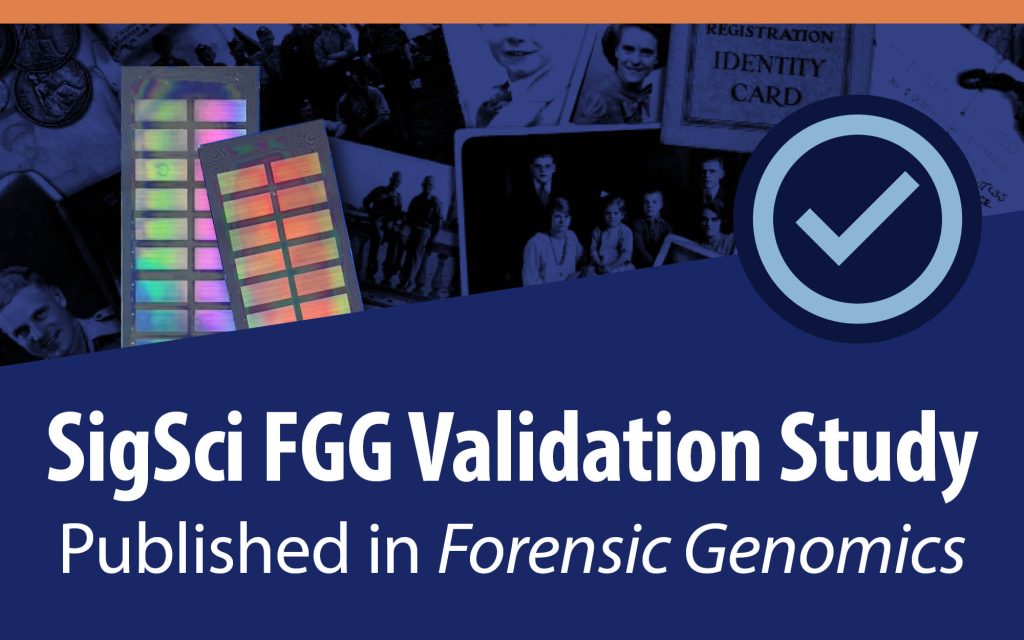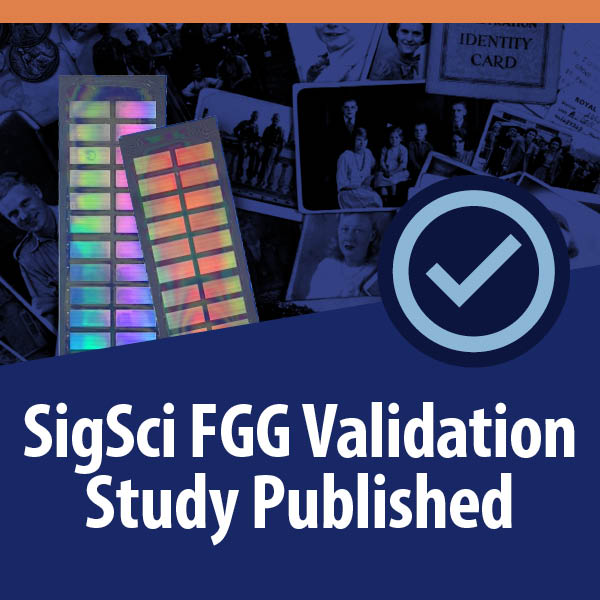
Abstract
Microarray processing, which interrogates hundreds of thousands of single nucleotide polymorphisms (SNPs) across the human genome, has recently gained traction in forensics due to its use in forensic genetic genealogy, which is based on analysis using SNPs to compare distant relatives in publicly curated databases for the purposes of developing investigative leads or identifying human remains. To date, there has been no published developmental validation of microarray processing using the Scientific Working Group on DNA Analysis Methods (SWGDAM) Validation Guidelines for DNA Analysis Methods and Federal Bureau of Investigation Quality Assurance Standards. Validation of these methods are warranted to identify samples suitable for microarray analysis and to assess the quality of the data obtained before upload to genealogical databases. In this study, we validated the Global Screening Array for use in forensic investigations according to SWGDAM guidelines, including the following studies: precision and accuracy, sensitivity, contamination, degradation, species specificity, mock case-type samples, mixtures, repeatability and reproducibility, and stability. Results indicated accurate genotype calls with SNP call rates >95% at DNA input as low as 0.20 ng. In addition to SNP call rate, we developed interpretation thresholds for signal intensity and heterozygosity to allow for sample quality assessment and identification of highly degraded and/or non-human DNA. This study demonstrates that high-quality data can be generated from multiple sample types, including mock forensic evidence that simulated the challenges that are often encountered in forensic cold cases.
Read full paper here.
Authors
David A. Russella, Erin M. Gordena, Michelle A. Pecka, Christina M. Neala, Mary C. Heatona, Jessica L. Boucheta, Alexander F. Koeppela, Elayna Ciuzioa, Stephen D. Turnera, Carmen R. Reedya
aSignature Science, LLC, Austin, Texas, USA; Center for Advanced Genomics, Charlottesville, Virginia, USA

